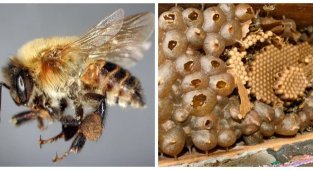Four-banded melipons: These bees do not have a sting, but in every hive there is an angry and very demanding bouncer at the entrance (8 photos)
When I was a schoolboy, I spent the whole summer at the dacha. I pumped water, watered the beds, weeded, dug and hilled. I didn’t like working, but I didn’t like the bees our neighbor bred even more. After every sting, I dreamed that the stingers would be taken away from the bees and forced to work in agriculture. Oddly enough, my wish came true. Four-banded melipons cannot sting, pollinate flowers perfectly and even live in greenhouses! 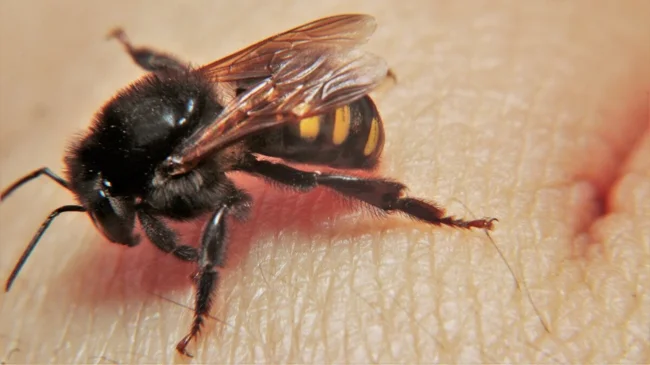
It’s just a pity that we can’t accommodate them. These insects live in Brazil, in a relatively small area of the country. But you can find them in any biome, as long as there are trees with large hollows there. Hymenoptera hide their clay nests in them. 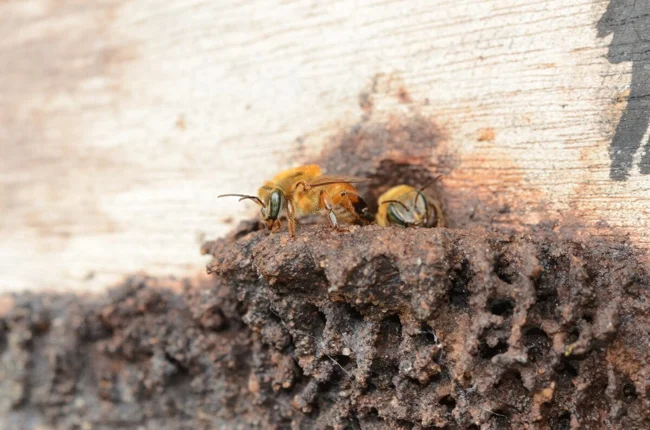
It doesn't look very good, but the efficiency is great.
At first glance, it seems that in the wild a kirdyk awaits bees without stingers. But the Melipons developed a competent strategy to combat the invaders. There is only one entrance to the nest and it is so narrow that the bees have to take turns entering and exiting. It is also guarded by at least one guard. 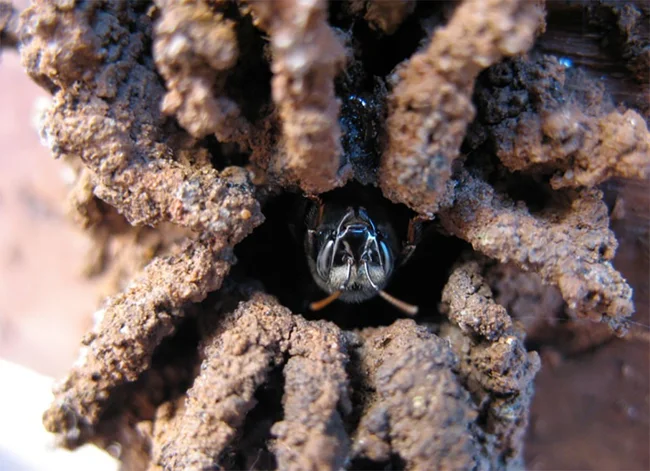
The lookout intercepts small beetles, ticks and other freeloaders. But he's not particularly strong. Although the worker bee has strong jaws, it is only a centimeter long. Large predatory beetles and wasps easily attack the guard one on one. 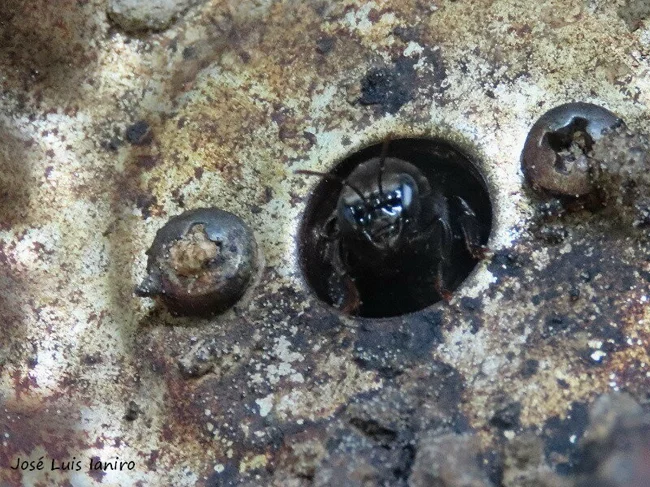
Only he won't be alone. In case of danger, the worker bee calls her sisters. They use their mandibles and spray the enemy with unpleasant, confusing pheromones. It is difficult to cope with such pressure, so most invertebrate predators retreat unsalted. 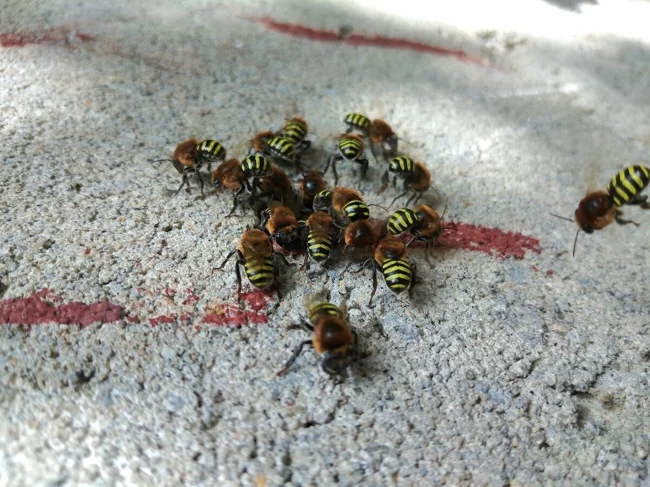
But they literally have no protection from large animals at all. This, suddenly, did the yellow stripes good. People really liked the fact that to extract honey they didn’t have to wear sealed suits, smoke insects, or endure painful stings. The animals are extremely passive and do not try to protect the collected honey at all. 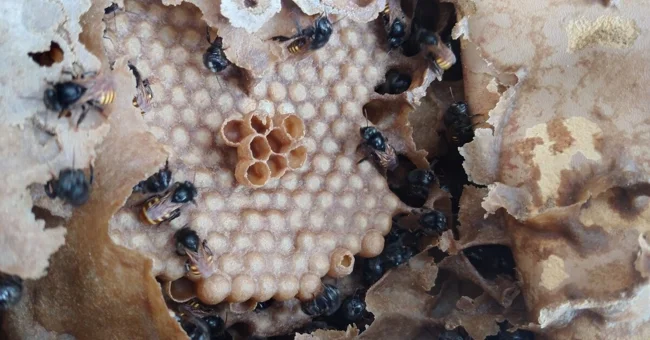
This feature was appreciated a long time ago, back in the days of the ancient Mayans. Modern people have gone even further; we have learned to place insects in greenhouses, where bees quickly and efficiently pollinate plants and produce 1-1.5 kilos of honey per season. 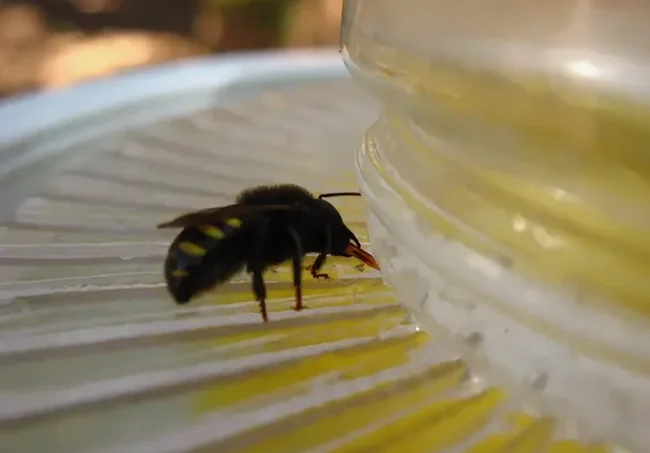
In agriculture, they turn out to be even more effective than ordinary honey bees. The latter's foragers receive clear and detailed instructions on how to locate food. Therefore, they collect pollen only from specific flowers that are pointed out to them. In turn, melipon workers receive information only about the approximate location of the required vegetation. In our conditions this would not work, but in Brazil there are flowers in abundance at any time of the year, so the bees still do not return without food and process everything that their paws can reach. 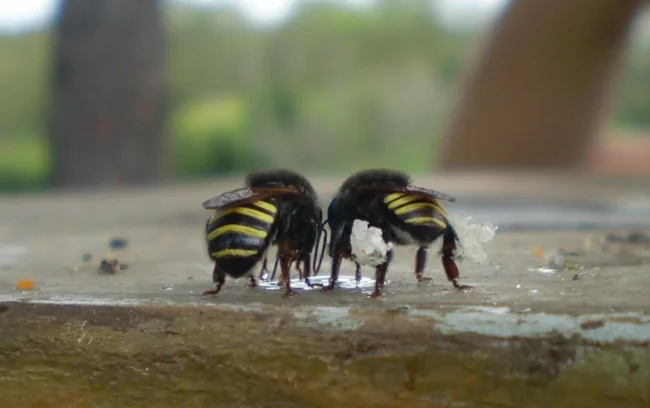
If these (or similar) animals lived with my neighbor, life in the country would be a little better.
